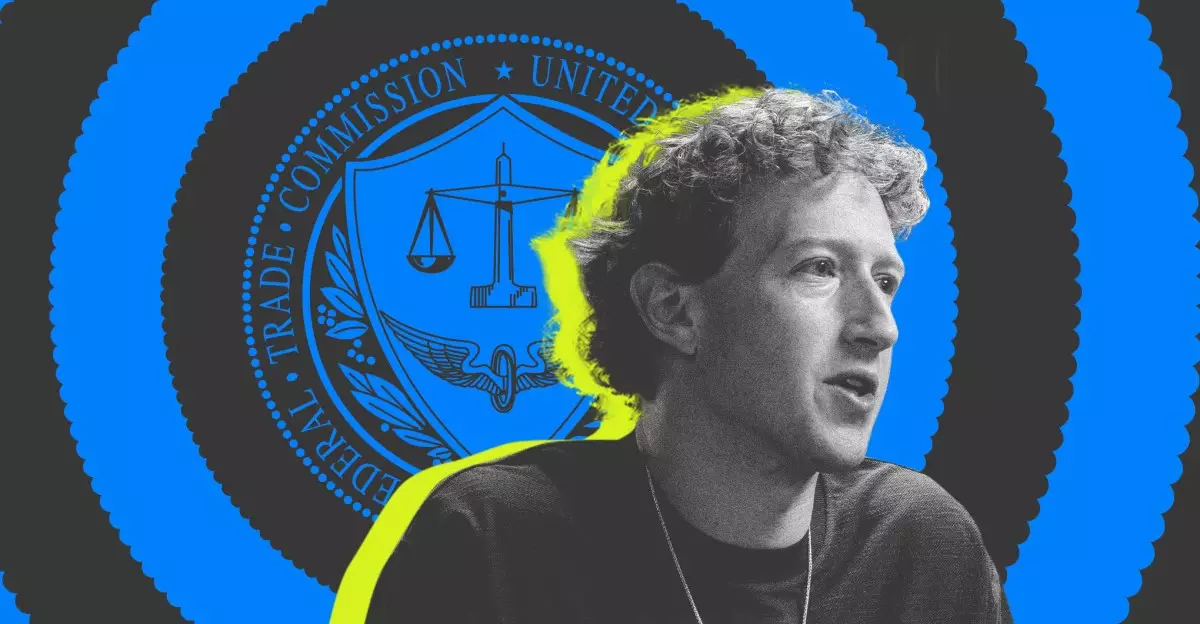Meta Platforms, Inc. stands today as a titan of social media, yet its existence could have unfolded through a tapestry of radically different choices. As the Federal Trade Commission (FTC) probes the company regarding antitrust violations, the courtroom has become a stage for CEO Mark Zuckerberg to reflect on pivotal decisions that shaped not just Meta but the entire social media landscape. The case at hand could force Meta to reconsider its entire portfolio, including the divestiture of Instagram and WhatsApp, scrutinizing how past decisions affect the present and future of digital connectivity.
Zuckerberg’s extended testimony has provided a glimpse into the strategic mindset that guided Meta’s expansions. For nearly nine hours, he engaged in a nuanced dance with the FTC, defending his acquisitions while contemplating the implications of their potential breakup. The FTC’s approach is twofold: they present a theory of the market focused on personal social networking, and seek to illuminate Zuckerberg’s motivations for absorbing competitors. This pursuit highlights a critical question about market power in an era defined by rapid technological advancement and shifting consumer preferences.
The Fluid Nature of Competition
What emerges from Zuckerberg’s courtroom remarks is a complex vision of competition. Rather than adhering to a static definition of social networking, he insists that the market is more like a river, constantly morphing as new platforms gain traction. TikTok, YouTube, and iMessage have emerged as formidable competitors, complicating the narrative that Facebook solely dominates the landscape. Instead of a linear trajectory, Zuckerberg suggests that the social media realm is replete with overlap and shared functionalities across various platforms.
This fluidity challenges traditional antitrust narratives that define market boundaries rigidly. By insisting that engagement is more about connectivity than platform specificity, Zuckerberg shifts the focus away from Meta’s historical monopolistic claims. Instead, he invites a broader contemplation of what it means to “connect” in a digital world that increasingly blurs the lines between social interaction, media consumption, and professional networking.
Alternate Realities: What Ifs of Meta’s Strategy
Zuckerberg’s assertions unveil a treasure trove of “what if” scenarios that reveal just how precarious the balance of power is in the tech industry. At one point, he thoughtfully speculated on a world in which Meta had successfully acquired Snapchat for $6 billion—an investment that could have significantly accelerated its growth trajectory and altered the competitive dynamics with TikTok and Instagram. The realization that such a seemingly simple decision holds the weight of immense consequence throws stark light on how competitive forces shape the tech landscape.
Moreover, Zuckerberg’s wild musings about wiping users’ friend lists to reinvigorate Facebook highlight a more introspective side. The sentiment of longing for the early thrill of social media resonates with many long-term users, underlining a collective nostalgia for simplicity amidst an increasingly chaotic online environment. One can argue that the potential implementation of such a drastic measure speaks to deeper strategic vulnerabilities in addressing user engagement over the years.
Monetization vs. User Trust
Central to the FTC’s argument is the allegation that Meta has inflated its ad load due to a lack of viable alternatives for users seeking social networking services. Zuckerberg’s candid admission about investigating a feed composed exclusively of advertisements became a breakthrough moment in court. This approach starkly contrasts with the modern consumer’s demand for authenticity, signaling a troubling tension between monetization strategies and user trust.
The dialogue between revenue generation and user experience becomes even more complicated when considering the internal documents referenced in the trial, illustrating Zuckerberg’s anxieties about Meta “falling behind.” His fears were not merely about market share; they were about adaptability and the challenge of remaining relevant in an industry that is anything but stagnant. Such reflections illuminate the unique pressures tech executives grapple with and how those pressures inform pivotal business choices.
A New Lens on Connectivity
As the courtroom drama develops, the implications for the future of Meta hang in the balance. The examination of past decisions raises a crucial dialogue about the very essence of connectivity in the modern world. If Facebook is a place for personal connections, should it also be subject to scrutiny over how those connections are monetized? The ongoing antitrust case does not merely challenge a corporation but prompts a reevaluation of the frameworks through which we understand social media, competition, and user sovereignty.
In this evolving scenario, one thing is clear: the landscape of social media is more than the sum of its features. As users, stakeholders, and regulators engage in defining the boundaries of this digital universe, the outcome will shape not just Meta’s trajectory but the broader social fabric of how we communicate, interact, and share in the 21st century.

